News
The Best Remember The Ryder Cup
Over the years Golf Digest Senior Writer Guy Yocom has interviewed a number of Ryder Cup captains and players for his "My Shot" series and "The Golf Digest Interview." Some behind-the-scenes highlights on everything from pressure to gamesmanship to sportsmanship:
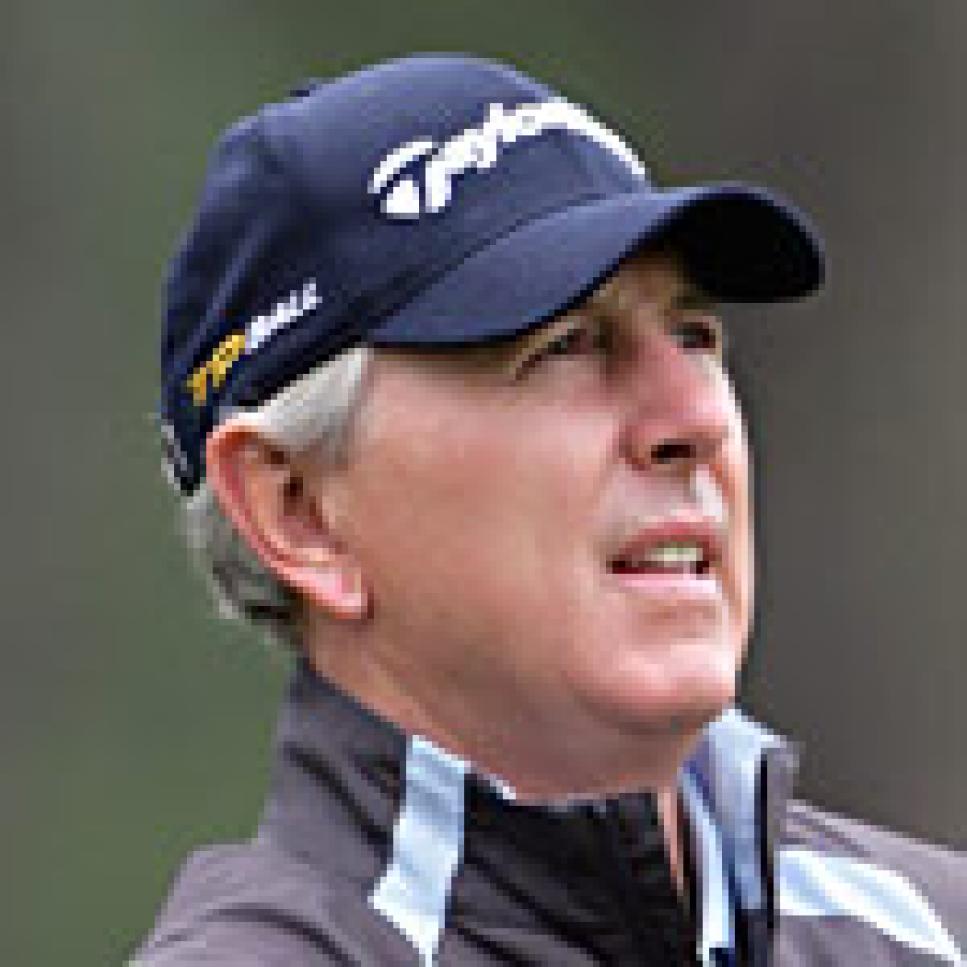
"You don't win three U.S. Opens without having some ability to handle pressure. But the 1991 Ryder Cup was another animal. I wasn't playing particularly well, and I'm playing Bernhard Langer, one of the toughest players of all time. As the day went on, it got more and more intense. By the time we reached the 17th hole, it became difficult to breathe. I was 1 up but missed the green with my tee shot. As I'm walking to the green I see Seve Ballesteros talking to a teammate in Spanish. Trying to keep things light, I say, 'Hey, Seve, what did you say?' He looked at me and says, 'I said, "Too bad you didn't knock it in the water." ' That didn't bother me at all. He's competitive. That's fine."
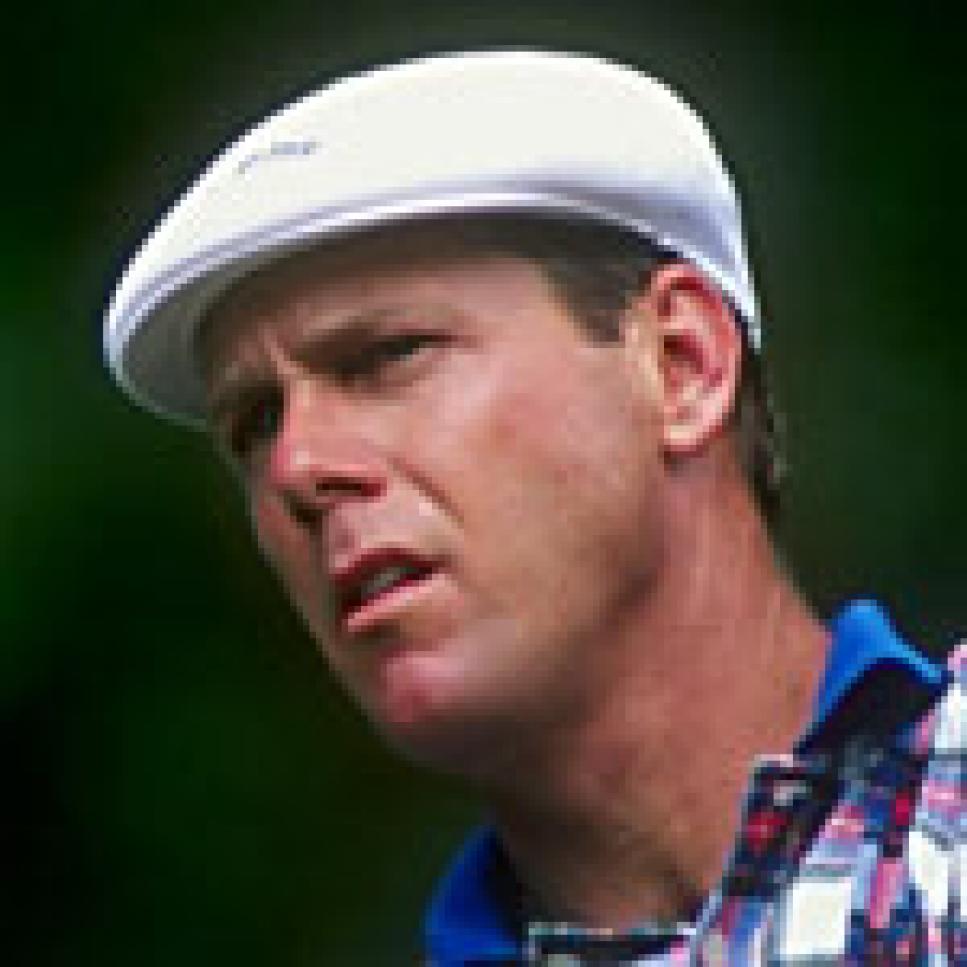
(On Langer's missed putt against Irwin that kept Europe from retaining the cup at Kiawah Island): "I'm glad I didn't have it. I wouldn't have wished that on anybody. But I will tell you who would have liked to have been in that position: Jack Nicklaus."
(On losing to the Europeans at Muirfield Village in 1987): "Muirfield was not nice. And [captain] Jack Nicklaus let us know about it when we finished. We had a little meeting before the dinner we had to go to that night, and Jack just wore us out. He told us, 'You guys just don't know how to win. How many matches were we leading going into 18 and didn't win them? Look at you, Payne Stewart. You make all this money on tour, but how many tournaments have you won? Why don't you win more?' He said, 'You guys need to learn how to win or you're going to continue getting beaten in this thing.' There wasn't any sugarcoating it. I'll tell you, that speech was good for me."
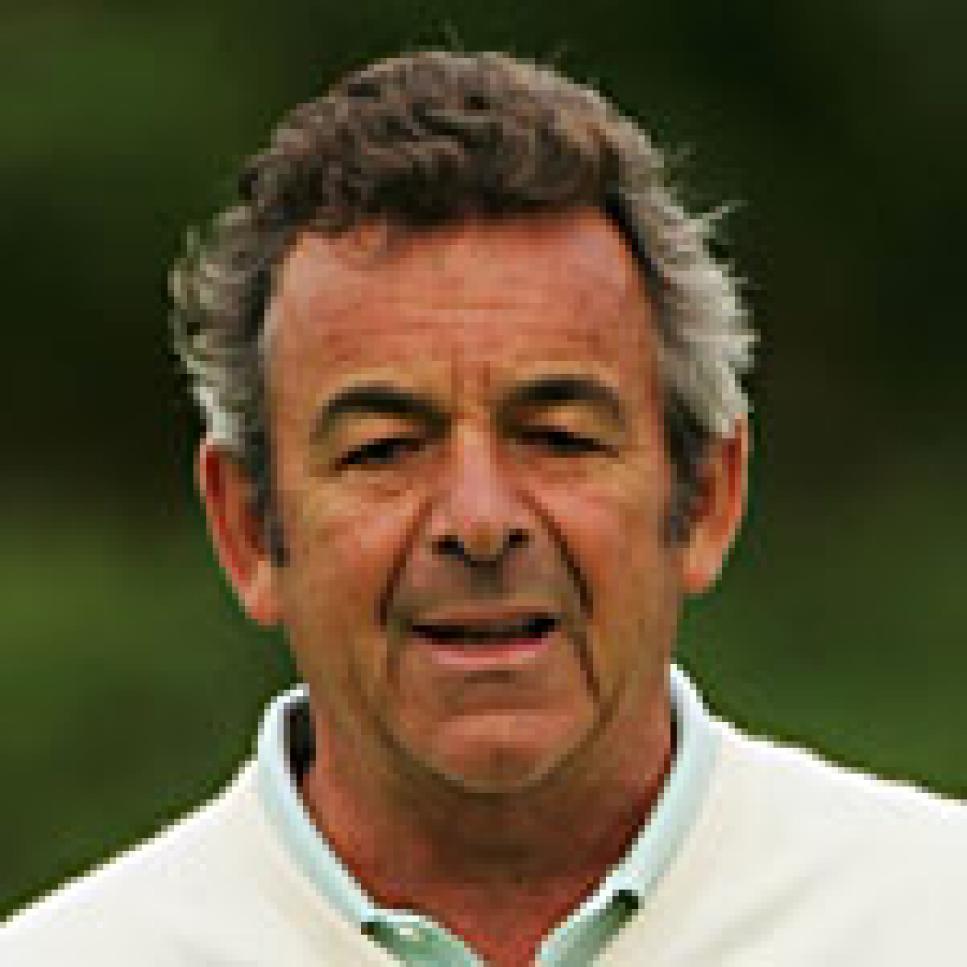
"In the Ryder Cup, one bad apple can spoil the whole barrel. In 1979 at The Greenbrier, we had a player who sabotaged any chance of our team putting up a fight. This guy didn't show up for team meetings, he disrespected the team captains, didn't stand up for the national anthems, didn't wear the right uniforms and wouldn't help his partners. He signed the menu at the team dinner, and then was told the menu was for a priest. He asked for the menu back and added, 'son of a bitch' after his name. The point is, the Ryder Cup is all about being a team, and this fellow only cared about himself."
"In 1985, Nick Faldo was going through a divorce. When the Ryder Cup got under way, he didn't look comfortable and lost his morning foursomes match. I took him aside after that and said, 'Nick, I've got a job to do. Do I send you out this afternoon, or do I sit you down?' Nick told me, very quietly, 'Sit me down.' It took enormous courage and humility for Nick to put himself aside. Now there is a team player."
"Paul Azinger was a constant thorn in my side. He was the best American player in my years as captain. Match play is in this man's blood. The better the player Azinger went up against, the better he played. Even Seve Ballesteros, who could intimidate almost anyone, couldn't faze Paul."
"After we won at The Belfry in 1985, the guys threw me in a swimming pool and ruined a very expensive suit. To tell the truth, it spoiled some of the thrill. When we won at Muirfield Village two years later, we visited a post-tournament party, and I left after two minutes. I went back to my hotel room, sat with my wife and reflected over a large whiskey."
"At the Ryder Cup at Kiawah in 1991, Steve Pate got hurt in a car accident and couldn't play, so our man in the envelope also had to sit out. That player was David Gilford. Our captain, Bernard Gallacher, bless his heart, chose me to inform Gilford he wouldn't be playing. When I broke the news, Gilford was absolutely gutted. I've never seen a man so broken. That's one part of the Ryder Cup I do not miss."
"There's no way I would have missed the two-footer Jack Nicklaus gave me for a tie in the 1969 Ryder Cup. But you'd better believe I sent him a thank-you note when it was over."
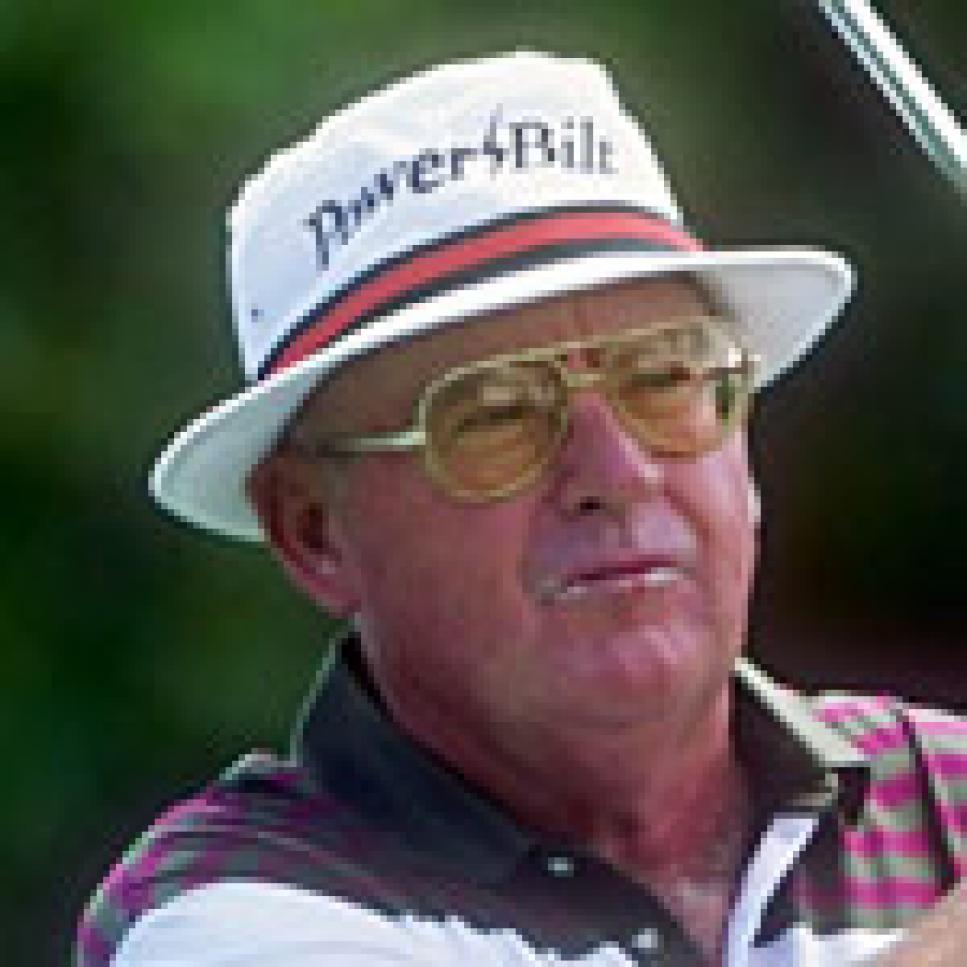
"The 1969 Ryder Cup had an element of intrigue not everybody knows about. You've heard how Jack Nicklaus conceded the putt to Tony Jacklin on the last hole on the last day, the competition ending up tied. [The U.S., as the defending champion, retained the Cup.] Jack has said that he conceded the putt purely out of sportsmanship, but I was on the team, and none of us players believed that. See, our captain that year was Sam Snead. He sat Jack down in the morning the first day and in the afternoon the second day because he didn't want Jack to get worn out. Jack wanted to play and was upset about being benched. Most of us believe Jack conceded the putt at least in part to get back at Sam. And it worked, because behind the scenes Sam was furious that Jack didn't make Jacklin hole that two-footer."
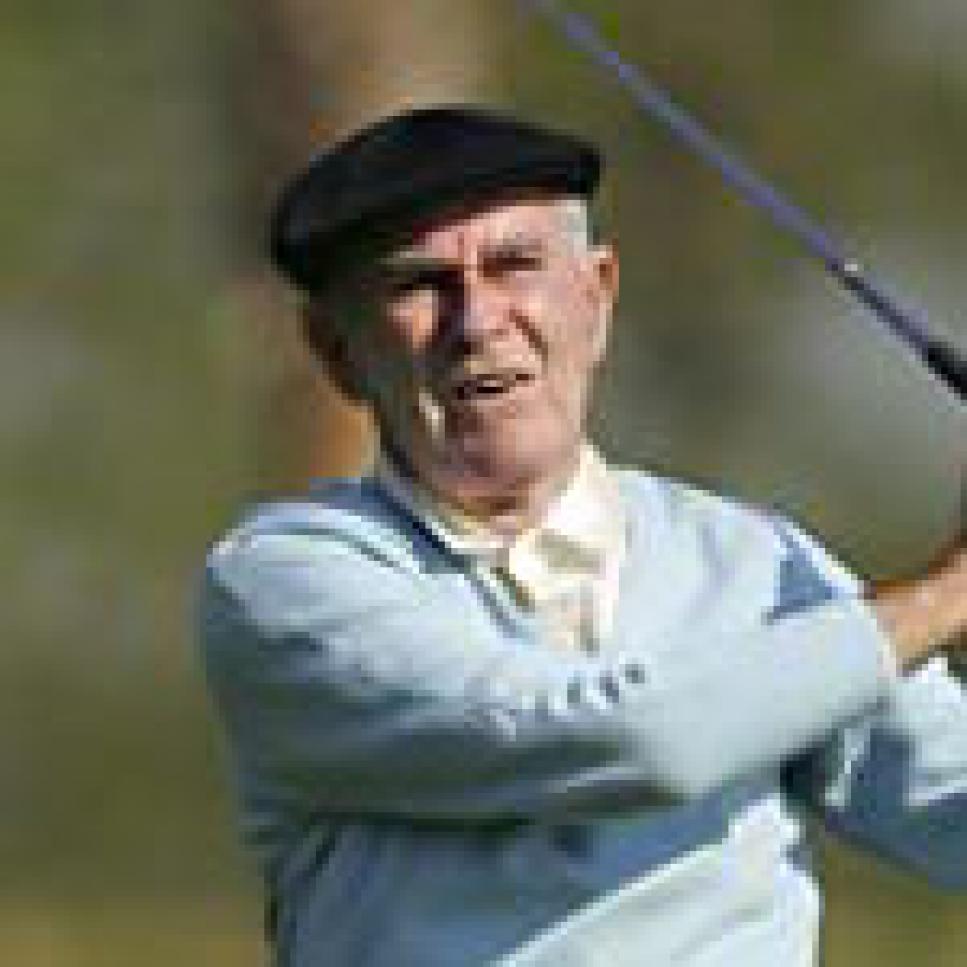
"Ryder Cup pressure is something. In 1969 I was at the peak of my game and was paired in the alternate-shot matches with Ray Floyd. We talked strategy and decided that Ray would play first on the odd-numbered holes, and I'd play the even-numbered holes, where most of the par 3s fell. Well, they play the national anthem and Ray is crying. I'm crying, too, but now the song ends and it's time to play. Ray says, 'I can't hit it.' I said, 'Ray, you've got to hit first, otherwise it'll foul up our whole strategy.' He says, 'I don't care, I can't hit it.' Well, Ray missed the green on every par 3 that day and we lost, 3 and 2."
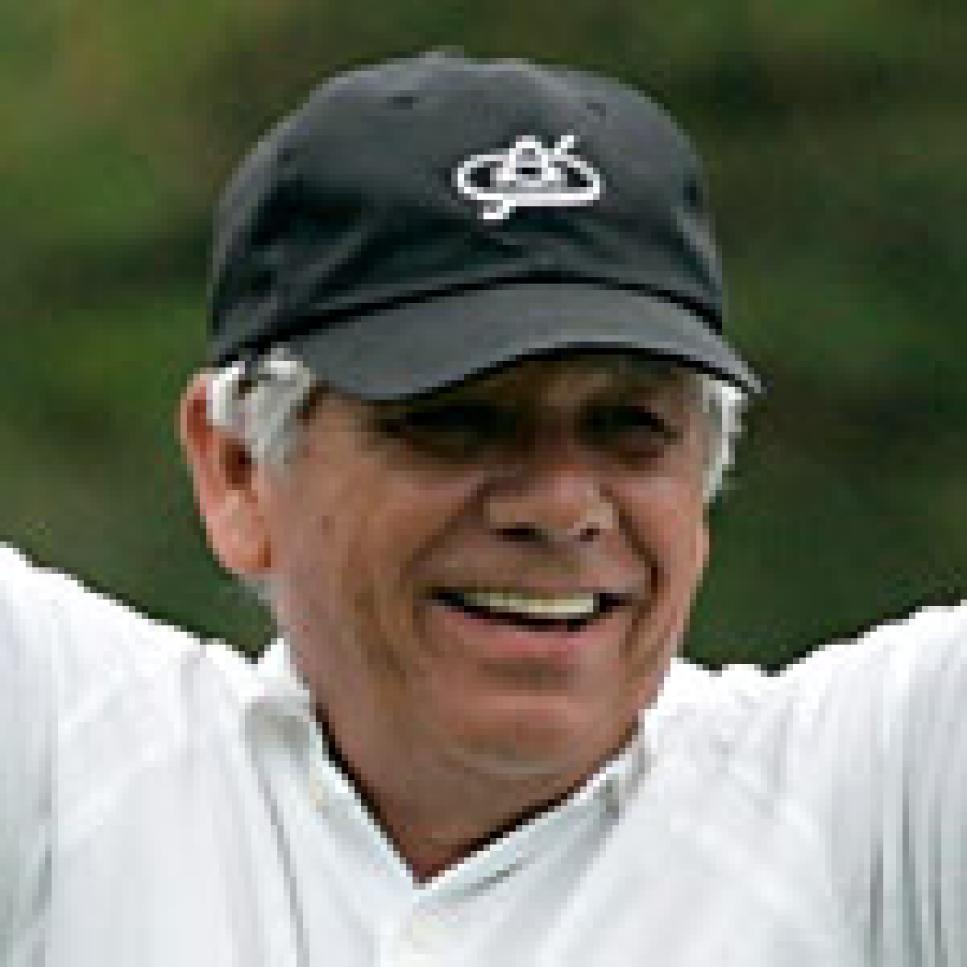
(On captaining the losing 1985 U.S. team at The Belfry): "I did everything I possibly could. I teamed them best I could. But I couldn't play for them. . . . They criticized me because they couldn't beat nobody. When I put them up against a bulldog, what do they want, the Chihuahua?"
"I'll tell you what hurt my players more than anything. This is the one thing I preached to them every time I got them in that room. I said, 'Don't pay any attention to the gallery. I've played six of these damn things, and the galleries will really get to you here. When you miss a putt, you're going to think you made an eagle. They're going to laugh and applaud like you ain't never seen before. That is going to stand your hair up on your neck.' They were not able to handle the galleries.' "
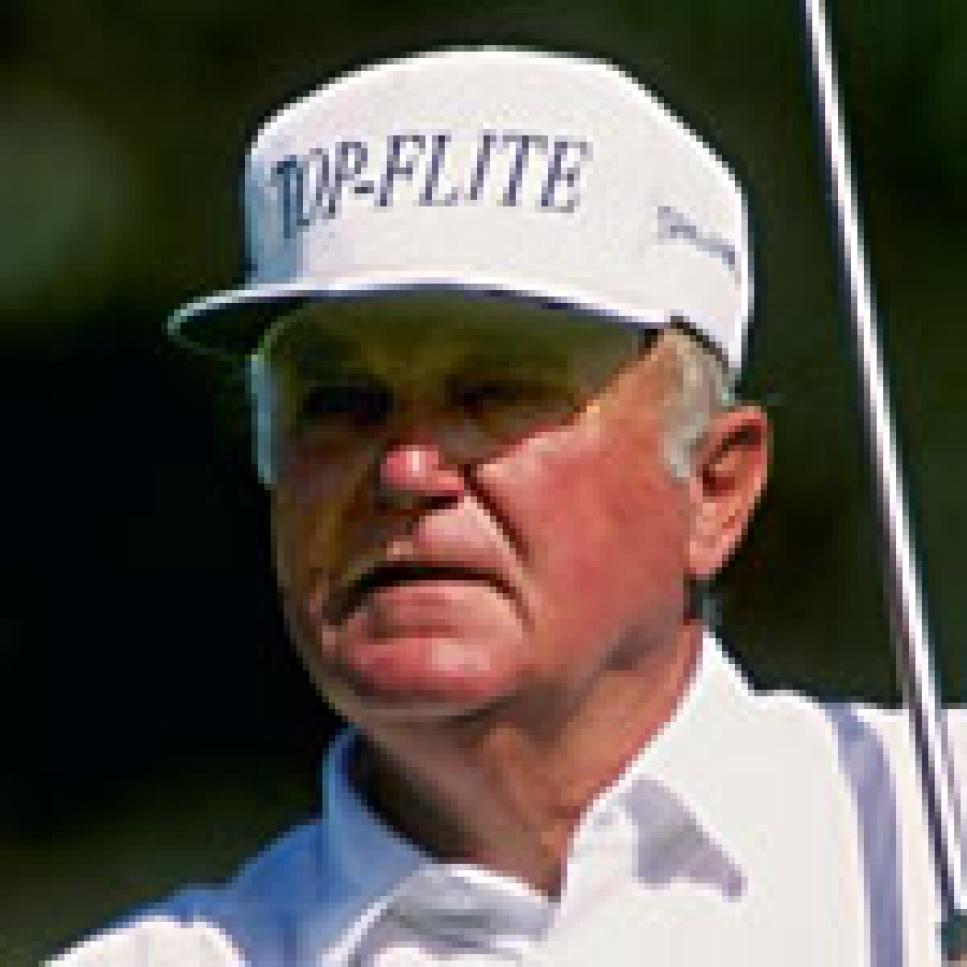
"At the 1959 Ryder Cup I missed my plane to Palm Springs from Los Angeles. So I bummed a ride with the British team, which had a charter plane. It's a 45-minute flight, and somewhere we ran into the Santa Ana winds, which were a lot more severe than the pilot had been told. The plane dropped 700 feet in just a few seconds and 4,000 feet overall before the pilots regained control. Books and magazines were glued to the ceiling of that plane. It was terrifying, and when the plane somehow got on the ground--we were back in Los Angeles, not in Palm Springs--every person on that plane was soaked in sweat. My gray suit was black. For several Ryder Cups after that, there was a reunion dinner. I was the only American member of The Long Drop Club."
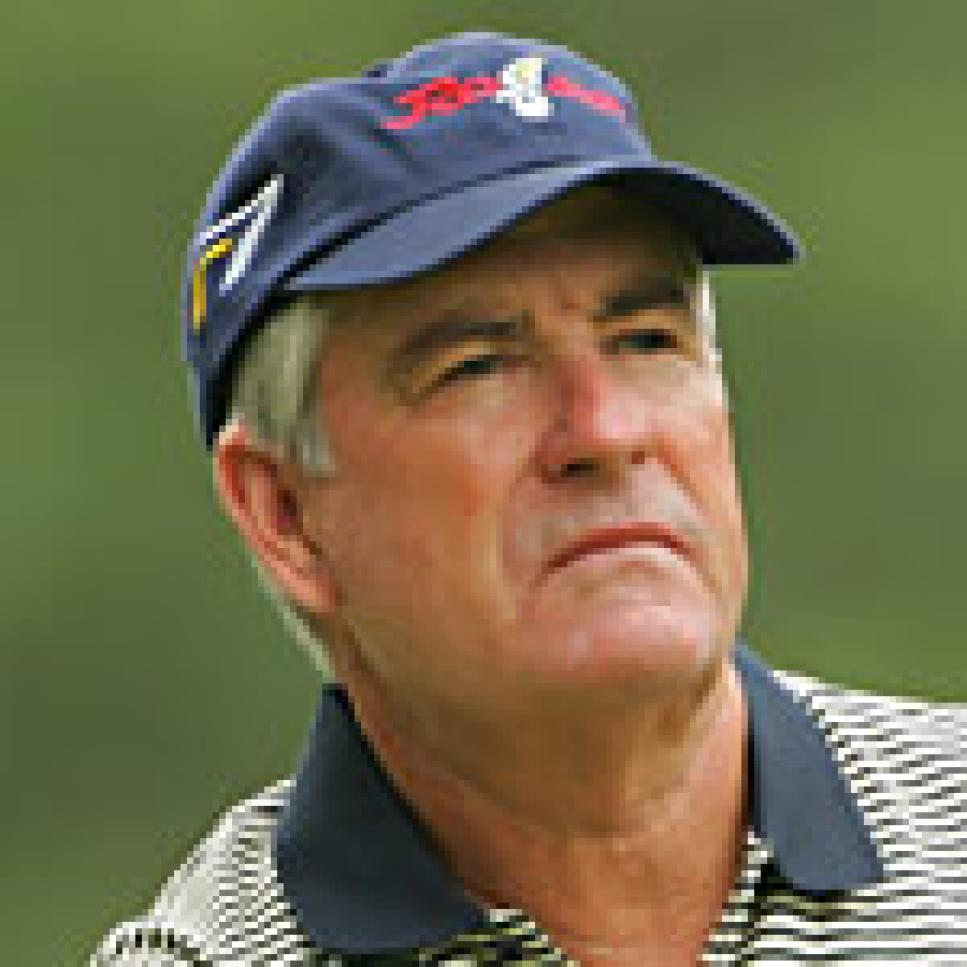
"At the time of the 1991 Ryder Cup at Kiawah Island, we'd just finished the Gulf War. Patriotism was running high, and I wanted to take advantage of that. Heck, the camouflage hats, that was my idea. We even had a team song, Randy Travis' 'Point of Light.' I wanted my team to bond. But I was troubled by the label 'War by the Shore,' and after that Ryder Cup, things sort of got out of hand. After Tom Watson was named the next captain, he said, 'I want the Ryder Cup to get back to what it should be.' I was offended by that, because that Ryder Cup, unlike any other, before or since, elevated the level of public interest tremendously."
"Two buses had been arranged to transport the respective teams to the closing dinner. As our guys start to board our bus, Ian Woosnam calls out, 'Hey, Stockie, can't we all fit on one bus?' I stammered that it probably was possible, if a few guys didn't mind standing. 'All right then!' says Woosie, and he picks up Corey Pavin and carries him onto the bus. So we all came and left together. I was tremendously impressed by the sportsmanship of the European players. They were devastated, but they never lost sight of what it was all about. This 'War by the Shore' stuff, the ugly things that came about, they all happened later. After it was over, Gallacher wrote a book that revealed some real paranoia. For example, he'd had some problems with their walkie-talkies, and he suggested that maybe we'd sabotaged them. Hell, I can barely turn on the TV, let alone monkey with radio signals. It was a silly accusation, and I couldn't help but take it personally."
"Match players with similar games in the alternate shot. It's easy to overthink it and put long hitters with short hitters, great putters with so-so putters, thinking they'll offset each other and so on. But it doesn't work. You want long hitters with long hitters, because they're both used to hitting short irons after big drives. Short hitters should play together, because they're used to long approach shots and can putt the eyes out of the hole. It's a firm-and-fast rule, and if you violate it, you're just asking for trouble."
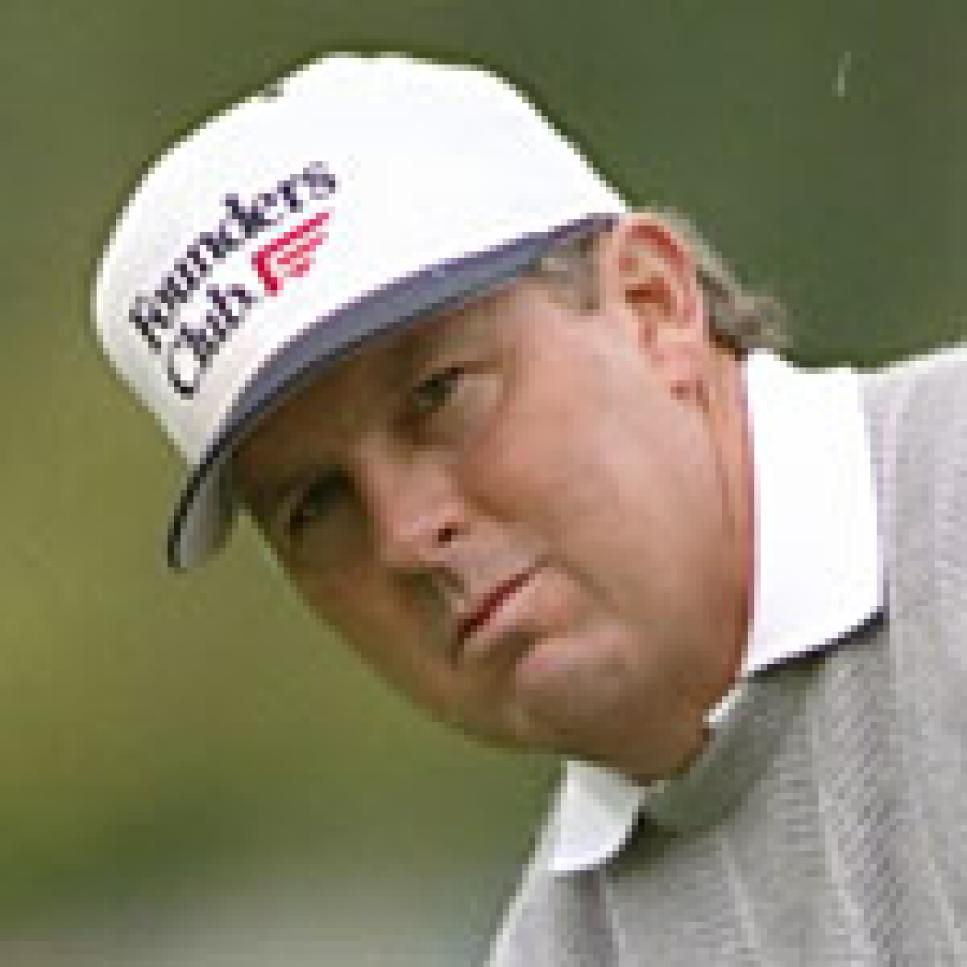
"I was on several losing Ryder Cup teams as a player, none as painful as the loss when I was captain [1995 at Oak Hill]. I thought I'd done everything perfectly, and still we got beat. At around midnight, as I sat in my room alone with a lot of drink in me, the phone rang. It was Tom Watson. 'I knew you'd still be up,' he said. 'Don't worry about it. It happens. You did everything right.' "
"I gave Seve headaches. I was 4-0 against him in the Ryder Cup. He'd try to intimidate you, but you just had to throw it right back at him. At The Belfry in 1985 on the first hole of a four-ball match, his coin was in my line, and I asked him to move it. I pulled my putt, but my ball struck his coin, glanced to the right and went in the hole. 'You do that on purpose!' Seve said. 'You make me move my coin so you bounce the ball off of it!' I just looked at him and said, 'That's right, Seve. I'm that f------ good.' "
"Paul Casey didn't deserve the crap he took for his comment about the U.S. Ryder Cup team. ['We properly hate them.'] I knew exactly where he was coming from. Look, it's easier to get up for an opponent you don't like. That's sports. I was and am friends with Bernard Gallacher and Sam Torrance, but for one week every two years I manufactured a very real dislike for them. I wanted to kick their ass. The problem is not Paul Casey hating the Yanks, it's our guys feeling a little too neutral about the Europeans."
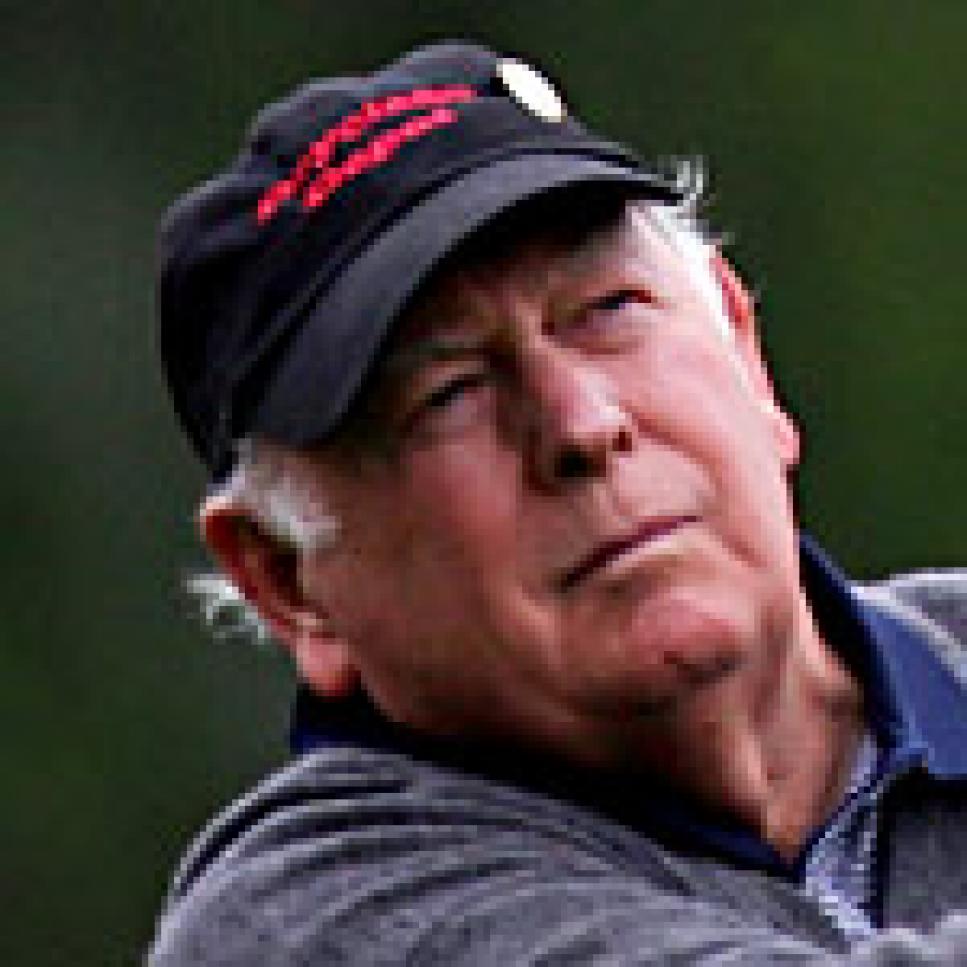
"I was at the Ryder Cup [2004] for a thing called the Captains Challenge. Former Ryder Cup captains stood on the tee of a par 3 and hit shots with the groups that came through. If the amateur hit it inside both captains, he got a new putter and a dozen balls. If he hit it inside one of us, he got a dozen balls. I drew Lanny Wadkins, and he was ruthless. He knifed one shot after another stiff to the hole. The poor amateurs, their shoulders sagged every time Lanny swung. He couldn't help himself--once a killer, always a killer."
"Me, I knifed shot after shot into the water--on purpose. You've got to send a guy to the parking lot with a dozen balls, don't you? The way Lanny was bearing down, you'd think he paid for those balls himself."
"Then I watched the Ryder Cup. On Friday I saw something that explained, in a nutshell, why we got beat. Tiger is playing with Phil, and on the 11th hole, a par 4, Mickelson is in the middle of the fairway and Tiger is in the right fairway bunker. Mickelson is farther away, and to my amazement he hit first, firing right at the flag. Now, why would Phil hit first in that situation? Tiger should have played first, tried to get his ball somewhere on the green from that difficult lie in the sand. If he succeeds, then Phil could/should go at the flag. It was Golf 101, and they failed."
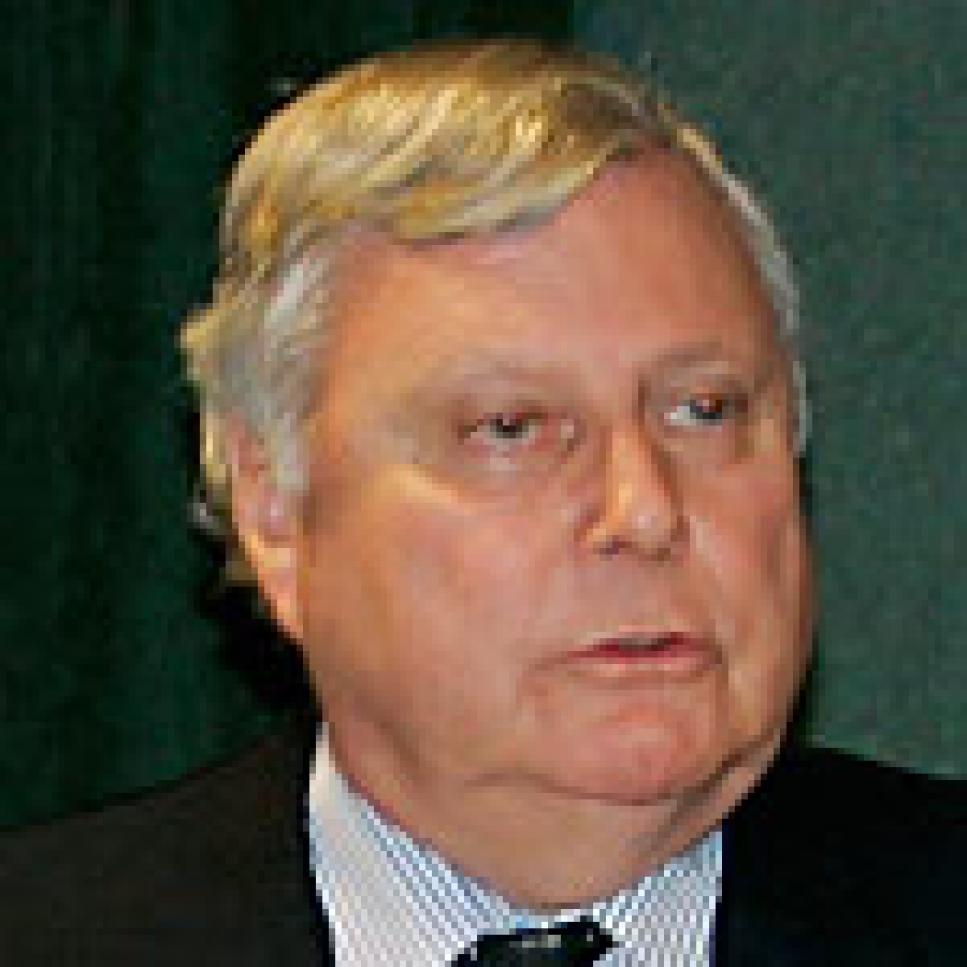
"I played Ryder Cup eight times. Had some success and beat Arnold Palmer and halved with Tony Lema in the same day in 1963. But it is the 1953 Ryder Cup, my first, that stays with me. I was 1 up on Jim Turnesa with three holes to play, and victory would mean Great Britain would hold the cup for the first time since 1933. I three-putted the 16th to lose the hole, then hit it out-of-bounds on the 17th to go 1 down. I then took four from the edge of the last to halve the hole but lose my match. Bernard Hunt overshot the last green to only halve his match, and thus we lost, 6½-5½. It was a very bitter defeat. Not much to say except that I was 22 years old at the time, and in my long career that followed I never suffered a more bitter defeat."
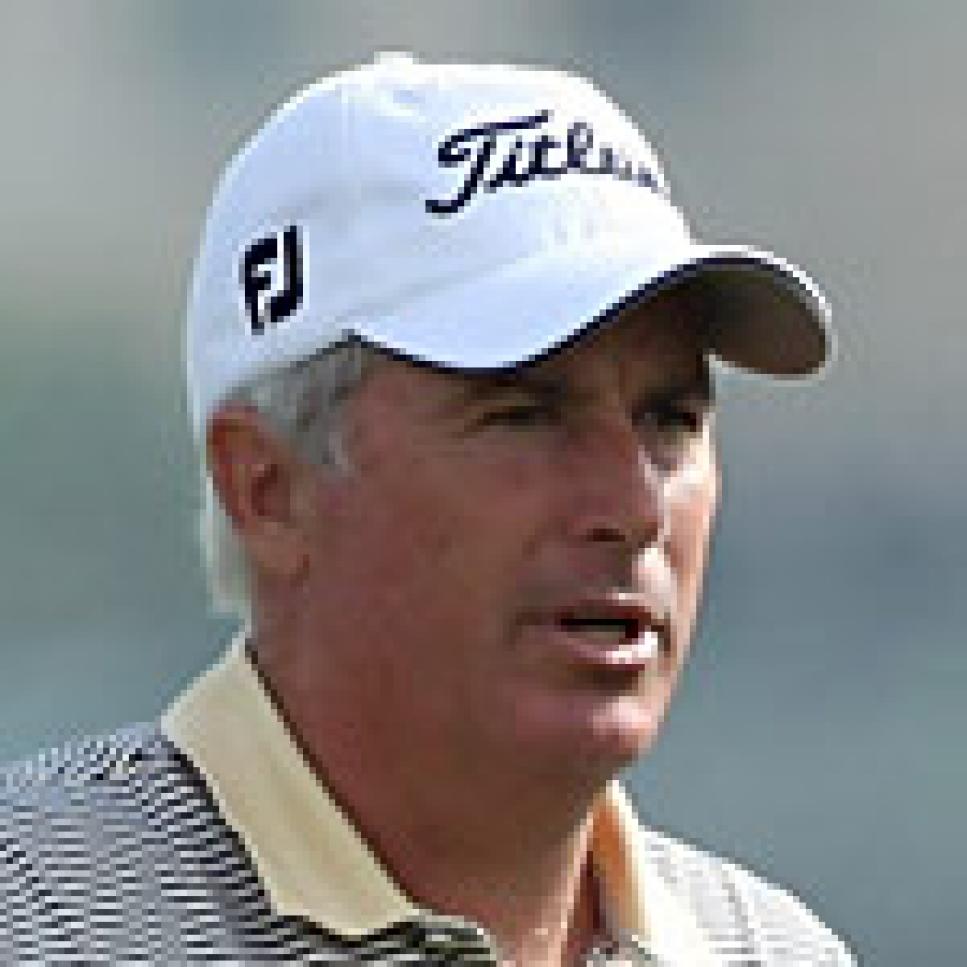
"Some pros are harder to play with than others, and the worst was Seve Ballesteros. To say he was difficult is an understatement. To a man, every player who went up against him in the Ryder Cup had a run-in with him. His gamesmanship was irritating, and he never let up. He'd do outrageous, childish things like coughing as you got set to swing, and if you objected he'd act wounded and escalate the situation. When he put himself into the role of victim, that's when he'd play his best. Just knowing he'd use a nasty incident to play well made me so mad that I'd play worse. There was only one Seve, and a little of him went a long way. But I'll tell you this, he could back it up."
"Our guys just aren't as excited about the Ryder Cup as they used to be, certainly not as excited as the Europeans, who always are motivated by beating the big, bad USA. For an American who plays in one of these things every year--there's the Presidents Cup, too--it's only a matter of time before you blow a big match and get fried by the media. For guys like Tiger and Mickelson it's not just about playing for their country, it's about getting scrutinized and hammered if they don't play well. . . . Pride will take over eventually. The Americans will get sick of getting beat. But that's still a ways off."
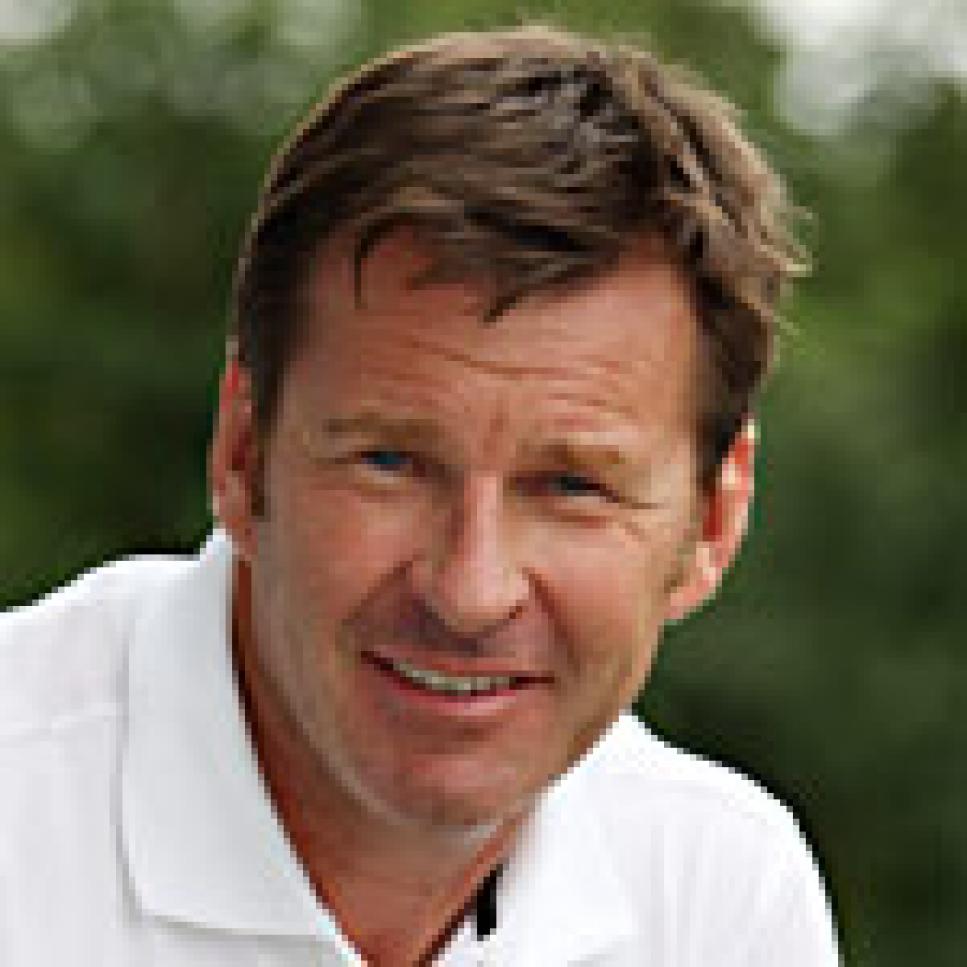
"There are some secrets you'll never get out of me. The biggest is the strategy we Europeans use in foursomes during the Ryder Cup. It's one area of the Ryder Cup we've dominated, and this strategy really is the reason we've won four of the last five Ryder Cups. Tony Jacklin invented it, and it's beautiful in its simplicity and devastating in terms of its effectiveness in the alternate-shot format. If the Americans got wind of it, there would go the Ryder Cup. It's subtle, but very visible when you look at it head-on. An observant person can see it."
"The alternate-shot secret, I'm keeping to myself. But I will say this about the four-ball: You need a good partner. There's no way around that, and I've had several. I started out with Peter Oosterhuis; he was my wing man, nailing down solid pars while I fired the big guns. Then Langer, Woosie, Monty and finally, Lee Westwood. By the time I got to Monty, I was the wing man. You want the young guy to be relaxed and playing as loosely as possible, while the more experienced player is charged with being the glue. That's a bit of strategy I reveal at the European team's peril: Formulate every team knowing one guy is the wing man and the other is the main gunner."
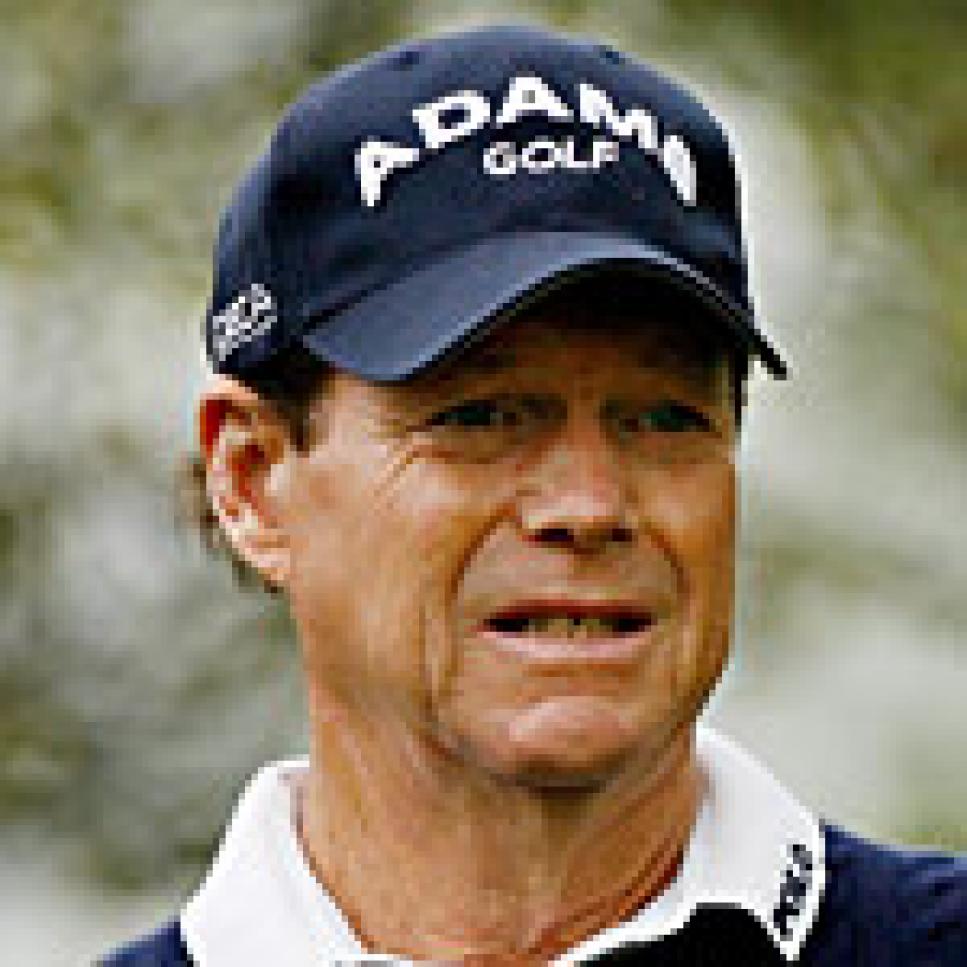
"At the 1981 Ryder Cup, my swing was a mess. Jack [Nicklaus] was my foursomes partner, and when I drove I put him in the tall heather about four times. I asked Jack for a lesson, and one thing he said really stuck with me: 'As you get older, your swing will get better.' I thought, Yeah, sure it will. But Jack turned out to be right."
"If I could choose one player to win a Ryder Cup singles match for me, I'd take Larry Nelson. That surprises you, but Larry had a great record [9-3-1 in three Ryder Cups] and more than that, he was fearless. Larry saw some fighting in Vietnam, and that might explain why he couldn't be intimidated."
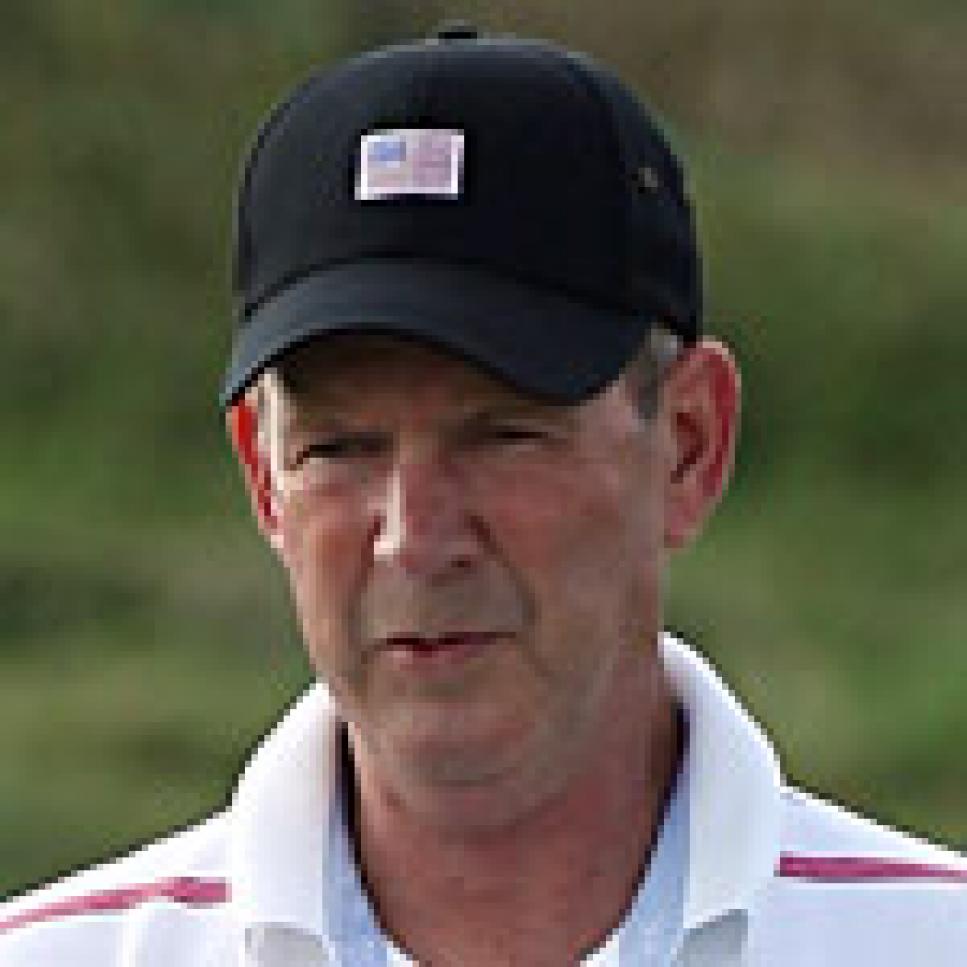
"I never did captain a Ryder Cup team, and I have to say, it hurts. Before the PGA of America announced who the 1995 team captain would be, it was tacitly understood that I would captain the '95 team at Oak Hill and Lanny would captain the 1997 team at Valderrama. But then Lanny came up with an inspired idea: He should captain the '95 team, and I should be moved back to captaining in '97 so that I could go up against Seve, who would captain the Europeans and whom I'd had so much success against as a player. I thought that was a neat idea, and Lanny did captain in '95. Fast-forward a year or so later. I was in Japan, when I got a call from my agent. Tom Kite had been named U.S. Ryder Cup captain for 1997. That really did hurt, because I wasn't privy to how my being bypassed came about. It's a very mysterious process, similar, I think, to how the Pope is chosen. I'm a non-confrontational person and didn't challenge it in any way--not that it would have helped. But the way the episode transpired still hurts. I'm sorry I never got the chance, and now it's probably too late for it to ever happen."
"Tom Kite's wife, Christy, told me that when Tom showed up to play in a regular tour event a couple of years ago, some of the young players didn't know who he was. That's kind of funny, if you're looking for something to tease Tom about. But it's kind of sad, too, that there are golfers who don't recognize a U.S. Open champion who also captained the Ryder Cup team less than 10 years earlier."
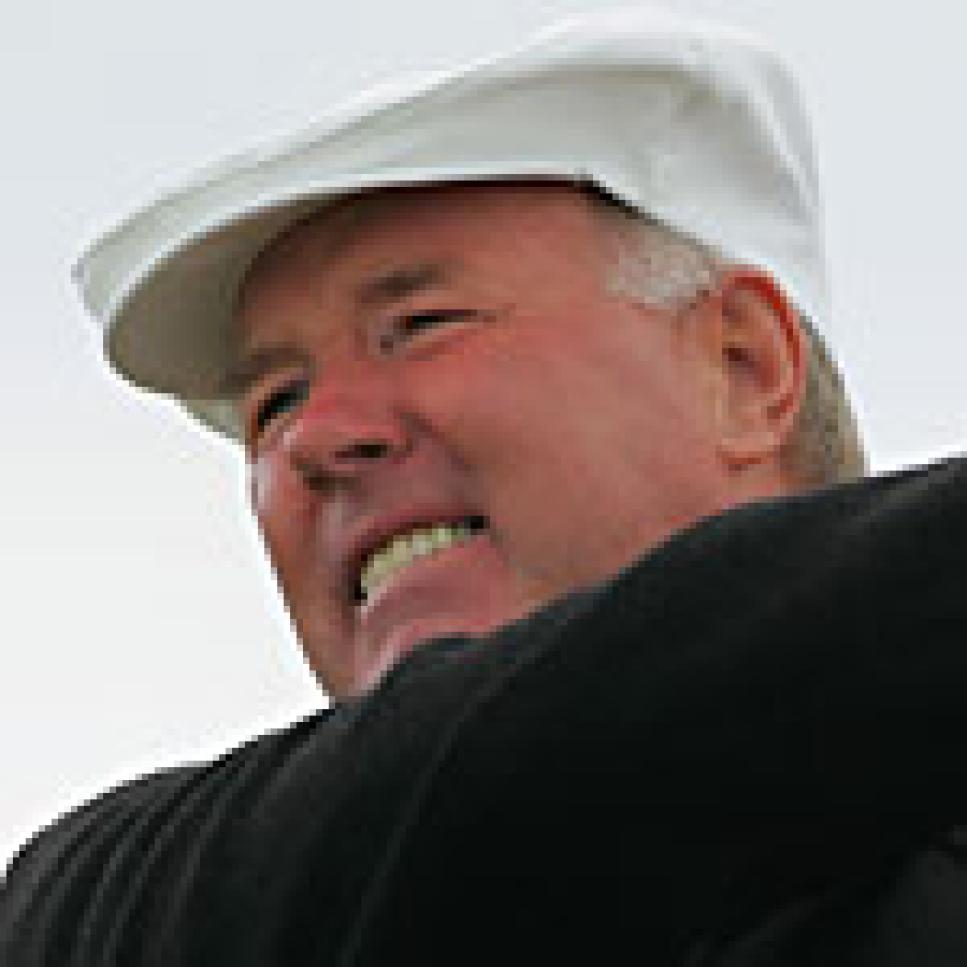
"I can remember when I was the defending [British] Open champion, and I missed a putt on the second hole in my first match in the '73 Ryder Cup [at Muirfield] to lose the hole. And the gallery clapped. I thought, 'They wanted me to miss. They're happy I missed.' But they were heckling with their clapping only, see. They weren't disrespectful to me. It's disrespect today. It's taunting."
(On the American celebration after Justin Leonard's putt at Brookline in 1999): "None of the players on the Ryder Cup teams I played on would have run out on the green like that. Can you imagine Jack Nicklaus charging onto the green while another guy has a putt to tie the hole? Honest to God, think about that."

